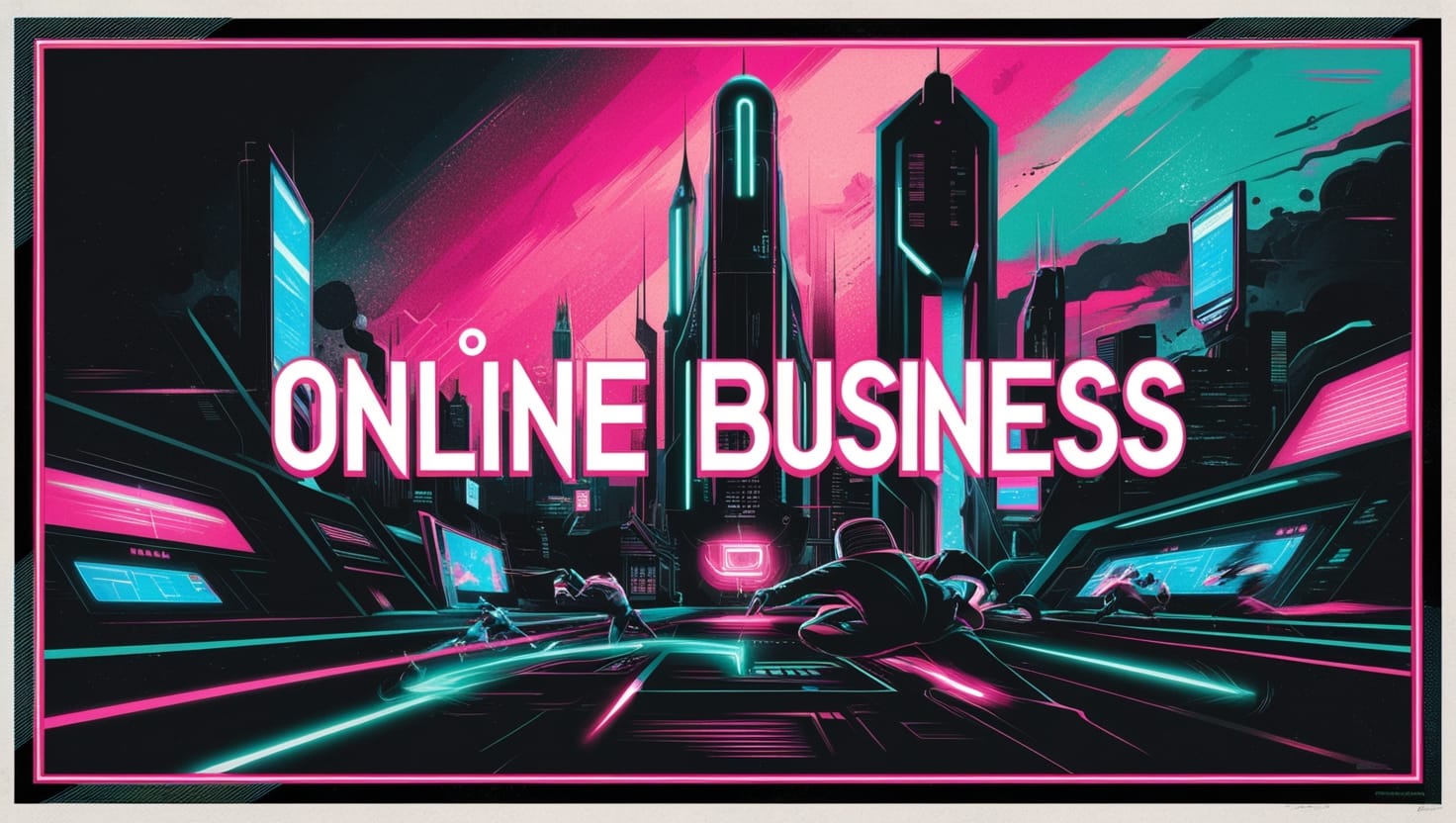Introduction
With the rise of the digital age, online business has emerged as an essential alternative to traditional business models. The Internet has democratized access to global markets, allowing anyone with a connection to venture into entrepreneurship without requiring massive investments. Whether you’re looking to start a small online store or create an innovative digital service, the possibilities are endless. This article explores the fundamentals of online business, best practices, and key strategies for success in this ever-evolving landscape.
What is an Online Business?
An online business is a commercial activity that primarily operates over the Internet. Unlike traditional businesses, there is no need for a physical store. Transactions, marketing, customer relationships, and often even production are conducted virtually. The most common forms of online businesses include e-commerce, digital service provision, monetized content creation, and more.
The primary advantage of an online business is its accessibility. It allows you to reach a global audience without the constraints of geography. Additionally, startup costs are often lower than those of a physical business, as there’s no need for a storefront, large teams, or significant initial inventory. However, this does not mean success is guaranteed—competition is fierce, and the effectiveness of your strategy will be crucial.
How to Start an Online Business
Starting an online business may seem simple, but it requires careful planning. Here are the main steps to launching your project:
1. Find an Idea or Niche
It is essential to choose a viable business idea. It should address a specific need or solve a particular problem encountered by a group of people. The key is to find a niche where you have expertise or a strong interest while ensuring there is demand in the market.
2. Study the Market and Competition
A thorough analysis of your target market is crucial. This allows you to understand who your potential customers are, what they are looking for, and how your competitors operate. This study will help you refine your offer and position yourself uniquely in the market.
3. Develop a Business Plan
The business plan is a roadmap that structures your project. It should include a description of your products or services, your goals, your marketing strategy, and financial projections. A well-developed business plan helps anticipate obstacles and define a clear direction for your company’s growth.
4. Create an Online Platform
Depending on the type of online business, you’ll need a platform to interact with your customers. This could be a website, an online store, a mobile app, or a presence on social media. The design and user experience should be optimized to offer smooth navigation and encourage conversions.
5. Promote and Launch Your Business
Once your platform is ready, it’s time to promote it. Create a marketing strategy to attract your first customers. Use various channels such as social media, search engine optimization (SEO), or online advertising.
What Are the Most Popular Online Business Ideas?
The world of online business is vast and diverse. Here are some of the most popular ideas:
1. E-commerce
E-commerce involves selling physical products through an online store. You can sell products you make yourself or get into dropshipping, where you don’t need to hold stock as products are shipped directly by the supplier.
2. Freelancing
Freelancing allows you to offer your skills as an independent contractor. This can include writing, graphic design, web development, social media management, and more. Many platforms like Upwork or Fiverr facilitate client connections.
3. Affiliate Marketing
Affiliate marketing involves promoting other companies’ products and earning a commission for every sale generated through your recommendations. It’s an excellent option for bloggers, influencers, or content creators.
4. Online Courses and Coaching
If you have expertise in a particular field, you can offer online training or coaching services. Online courses, especially in sectors such as personal development, fitness, or entrepreneurship, are in high demand.
5. Content Creation
Whether through YouTube, Instagram, or blogs, monetized content creation has become a true industry. Creators can earn money through advertising, sponsorships, or selling merchandise.
How to Succeed in Online Business
Succeeding in online business requires a strategic approach. Here are some key elements to increase your chances of success:
1. Unique Value Proposition
You need to offer something that your competitors do not. Whether it’s quality, price, customer service, or innovation, finding your unique value proposition is crucial to attracting and retaining customers.
2. User Experience
The design of your site, ease of navigation, and service speed are critical to converting visitors into customers. An optimized user experience is often a deciding factor in online success.
3. Constant Engagement
The digital world is constantly evolving. To remain relevant, it’s essential to innovate regularly, follow market trends, and adjust your strategy accordingly.
4. Performance Analysis
Use analytical tools to track user behavior, understand what works, and identify areas for improvement. Performance analysis will help you adjust your marketing campaigns and optimize profitability.
How to Use Digital Marketing to Boost Your Online Business
Digital marketing is essential for promoting an online business. Here are some common strategies:
1. SEO (Search Engine Optimization)
SEO helps your site appear in search engine results. Good optimization can increase your visibility and attract high-quality organic traffic.
2. Online Advertising
Platforms like Google Ads or social media ads allow you to quickly reach a large audience. Precise targeting enables you to reach people most likely to be interested in your products or services.
3. Email Marketing
Email marketing remains an excellent way to retain customers. It allows you to share promotions, updates, or maintain a personalized relationship with your audience.
4. Content Marketing
Producing relevant and engaging content (articles, videos, infographics) not only improves your SEO but also builds a community around your brand.
How to Finance Your Online Business
While starting an online business may require little capital, some initiatives may require initial investment. Here are some financing options:
1. Self-financing
If you have savings, self-financing is a great option to start without borrowing money.
2. Crowdfunding
Crowdfunding involves raising funds from people interested in your project. Platforms like Kickstarter or Ulule allow you to solicit a broad audience.
3. Bank Loans or Public Grants
Bank loans or public grants can be sought to finance the initial investments necessary for creating your online business.
4. Business Angels and Investors
In some cases, investors may be interested in taking a stake in your company in exchange for funding. This is an attractive option if you want to accelerate your growth.
What Are the Future Prospects for Online Business?
Online business is growing exponentially, and this trend shows no signs of slowing down. Technological advancements, including artificial intelligence, blockchain, and augmented reality, will transform how businesses interact with their customers. Mobile commerce (m-commerce) continues to grow, as do impulse purchases via social media.
In conclusion, online business offers countless opportunities. However, to succeed, it is crucial to have a solid strategy, stay adaptable to new technologies, and focus on customer satisfaction. Entrepreneurs who innovate while meeting the changing needs of their clientele will have a bright future ahead.





